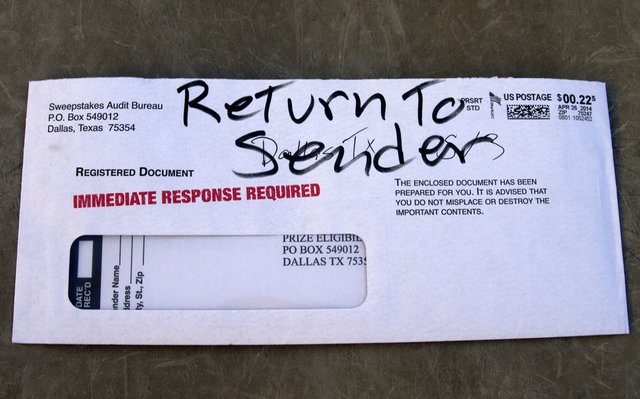The JavaScript Journey #7 - What are Functions?

I guess if you've ever watched any space sci-fi movie ever you'll be familiar with what functions are. In space travel, all the heroes need to go to cryo-sleep in order to travel the vast distances between stars. How does any of this make any sense, you ask? I'm not losing my mind, promise! View functions just like the space heroes exploring galaxies. Functions freeze code in order to use it at a later time. This frozen code can be reused as many times as you wish, without the need to write it again and again.
Dry Theory
First and foremost let's go through some dry theory. Before being able to understand the logic behind functions we need to hear the official definitions.
Wrapping code
Any function is a piece of code or program wrapped in a value. These values can be executed in order to run the wrapped program. Executing such a value, a function, is called invoking, calling, or applying it. All of these are heavy words. In the rest of the lesson, we'll stick to calling to keep it simple and concise. So how do we tell our program to call a function? Easy, we just put parentheses after the value which holds the function.
.jpg)
alert('Hello Steemit!');
Here we see a built in function that will create an alert window in your browser with the text Hello Steemit!. But of more use to us is the console.log() function.
console.log('Hello Steemit!');
It'll output the value given to it back to the console.
Return to sender
The behavior above is all classified as side effects. Functions are not that simple. They can also produce new values! Which is awesome, because you don't need side effects to be useful. Let's take another built in function in JavaScript, Math.max.
var maxNumber = Math.max(2, 4);
console.log(maxNumber);
// 4

You see? The function has returned a value and assigned it to the variable maxNumber. This means the function produced a value. Having this in mind, everything that produces a value is an expression. So it can be used in combination with other expressions.
Math.max(2, 4) + 6 > 5 || 1 == Math.min(1, 7)
// true
Bread and butter
Functions are the core of programming in JavaScript. They are used to structure larger programs and to reduce repetition. This means we can create subprograms in our larger program. Remember, above I mentioned that functions freeze code to be used later. This can be viewed as a subprogram. And to call upon it at a later time we give it a name. Meaning every function has a name, and that it is isolated from another subprogram.
Want to create a function? I bet you do.
Function definition
A function definition is just like a variable definition. The value of the function is assigned to the variable.
var square = function(x) {
return x * x;
};
var result = square(12);
console.log(result);
// → 144
Functions are created with the function keyword. Every function has a body and parameters. The body is wrapped in curly braces ({}), and contains all the expression that will be executed when the function is called. Functions can have as many parameters as the programmer wants or none at all. Here are two examples.
// No parameters
var sayHello = function() {
console.log("Hello!");
};
sayHello();
// → Pling!
// Multiple Parameters
var addTwoNumbers = function(x, y) {
return x + y;
};
var result = addTwoNumbers(5, 1);
console.log(result);
// → 6!
Backtracking
Let's take a step back and focus on return statements a bit more. I mentioned it determines what value will be returned from the function execution. But I didn't mention that the code in the function stops executing when it reaches a return statement. All code underneath a return will never be executed!
var addTwoNumbers = function(x, y) {
return x + y;
console.log('This will never be reached!');
};
var result = addTwoNumbers(1, 5);
console.log(result);
// the console.log() in the function will never be called!
// → 6!
The code that called the function will receive the value returned from it. In the example above that means the variable result will be assigned the value 6. But, what if we don't have a return statement in a function? What happens then!? Remember our friend undefined? Every function that does not have a return statement will return undefined. Take a look.
var addTwoNumbers = function(x, y) {
console.log(x + y);
};
var result = addTwoNumbers(1, 5);
console.log(result);
// → 6
// → undefined
Summary
Today you have learned what functions are and their basic use case. You now understand that they are used to structure larger programs and that they freeze code to be used later. They are defined with the function keyword and have parameters and a body. Functions are called by putting two braces after their name. This act is also called invoking. It runs the code which has been frozen inside of the function and returns a value if it is specified within the function. Otherwise the value undefined is returned.
Hope you guys and girls had as much fun reading this as I had writing it. Next time I'll be writing about control flow and conditional statements. Heads up though, we'll return to functions more a bit later.
Until next time, have fun!
Check out previous lessons
- Lesson 1 - Values
- Lesson 2 - Arithmetic and Operators
- Lesson 3 - Logical Operators
- Lesson 4 - Special Values and Precise Comparisons
- Chapter 1 Recap
- Lesson 5 - Expressions and Statements
- Lesson 6 - Variables
Drop an upvote if you liked the article, share if you believe it will be of help to someone. Feel free to ask any questions you have in the comments below.
I really loved this Post! I will try to read the whole Series +1 follow for me
I'm thrilled you liked it! Hope you have fun with reading the rest of the series. :)
Cool post. You can also do
return;if you don't want to return anything. I came across Golang's ability to have multiple return values (it would be cool if javascript implements something like that). I mean something likereturn x, y, z;.Also checkout my new post on Javascript's
constkeyword:https://steemit.com/programming/@codero/javascript-s-const-keyword
and follow me. I want to write more if there is support.
Follow me @codero
That's cool! But returning multiple values in an object acts just fine, at least for me.
Like this:
return { x: x, y: y, z: z}A word of advice from someone a bit more experienced. Please do not beg for followers. It can only diminish the respect people here have for you. I've never, not even once, begged for anything here, and still, people read my stuff. That's solely because I provide value, and value is worth reading. People are busy, they do not have time to read articles that are badly written or simply do not interest them.
Best of luck with your future endevours. :)
Fell in love with the way you covered every aspect of Functions. Thanks for this, looking forward to the next module
Thank you! Stay tuned, it'll be soon enough. :)
like your post and upped!
good
Get More Upvotes and Followers With : https://steemfollower.com/?r=1966